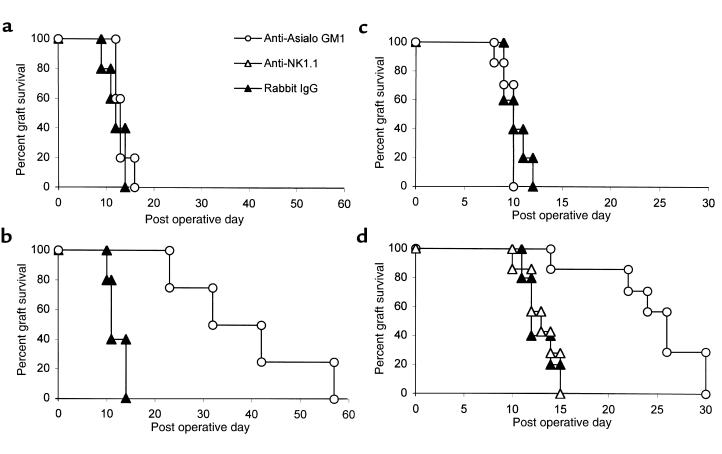Figure 5.
Anti–asialo GM1 delays skin allograft rejection mediated by CD8+ T cells. (a and b) B6 Rag1–/– recipients were reconstituted with 107 B6 CD4+ or CD8+ T cells and transplanted with Balb/c skin allografts 2 days later. (a) Recipients reconstituted with B6 CD4+ T cells promptly rejected Balb/c skin allografts when treated with rabbit Ig (MST 12 days; n = 5) or anti–asialo GM1 (MST 13 days; n = 5). (b) Recipients reconstituted with CD8+ T cells treated with rabbit Ig (MST 11 days; n = 5) promptly rejected Balb/c skin allografts. Recipients reconstituted with CD8 cells treated with anti–asialo GM1 had significantly prolonged allograft survival (MST 37 days; n = 4; P < 0.02). (c) B6 B2-microglobulin–/– promptly rejected Balb/c skin allografts when treated with rabbit IgG (MST 10 days; n = 5) or anti–asialo GM1 (MST 10 days; n = 7). (d) Balb/c skin graft survival was significantly prolonged in B6 class II–/– recipients treated with anti–asialo GM1 (MST 26 days; n = 7) compared with recipients treated with rabbit Ig (MST 12 days; n = 5; P < 0.01). Treatment of B6 class II–/– recipients with anti-NK1.1 did not significantly prolong graft survival (MST 13 days; n = 7).

